Monday 14th of October is Allied Health Professions (AHPs)’ Day, an annual opportunity for AHPs to come together and celebrate being part of the AHP family. During this week at UHBW we will be showcasing the impact AHPs make to the delivery of high quality care.
AHPs are the third largest workforce in the NHS. In the main they are degree level professions and are professionally autonomous practitioners. AHPs provide system-wide care to assess, treat, diagnose and discharge patients. Through adopting an holistic approach to healthcare, AHPs are able to help manage patients’ care throughout the life course from birth to palliative care. Their focus is on prevention and improvement of health and wellbeing to maximise the potential for individuals to live full and active lives.
Discover more about the 9 Allied Health Professions that are part of UHBW below.
Occupational therapists (OTs)
OTs support people with a range of interventions to enable them to return to or optimise participation in all the things that people do; for example, caring for themselves and others, working, learning, playing and interacting with others. Being deprived of or having limited access to any or all of these occupations can affect physical and psychological health and hence OTs positively impact upon the wellbeing and rehabilitation of patients in most care pathways and in the broader public health and social care environment.
Shelly Jackson, Occupational Therapist at the BHOC
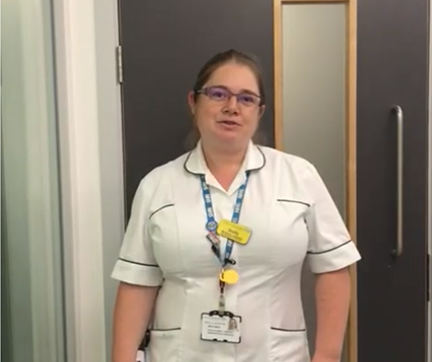
Shelly Jackson, Occupational Therapist at the BHOC

Physiotherapists (PTs)
Physiotherapists use physical approaches to promote, maintain and restore physical, psychological and social well-being, working through partnership and negotiation with individuals to optimise their functional ability and potential.
Physiotherapy uses manual therapy, therapeutic exercise, the application of electro-physical modalities and other physical approaches in response to individual need. Physiotherapists work across sectors and settings, including acute, community and workplace settings, and with a large number of population and patient groups including children, the working population, and older people.
Jessica Turton, Physiotherapist at the BRI

Jessica Turton, Physiotherapist at the BRI

Speech and Language Therapists (SLTs)
SLTs in the UK work with children and adults to help them overcome or adapt to a vast array of disorders of speech, language, communication and swallowing.
These include helping young children to access education, working with young offenders to enable them to access the programmes designed to reduce reoffending, reducing life-threatening swallowing problems in the early days after stroke and providing essential support to adults with a range of acquired neurological communication difficulties to help them return to work, and their roles in their family and society.
Hannah Asbridge, Speech and language therapist at St Michael’s Hospital
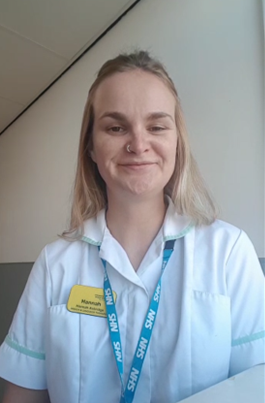
Hannah Asbridge, Speech and language therapist at St Michael’s Hospital

Dietitians
Dietitians are the only qualified health professionals who assess, diagnose and treat diet and nutritional problems at an individual and wider public health level.
Uniquely, dietitians use the most up–to-date public health and scientific research on food, health and disease, which they translate into practical guidance to enable people to make appropriate lifestyle and food choices.
Rachel White, Dietitian at Weston General Hospital
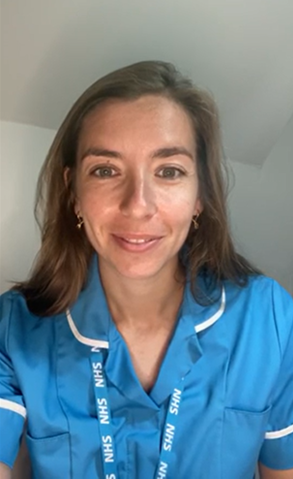
Rachel White, Dietitian at Weston General Hospital

Paramedics
Paramedics are the senior ambulance service healthcare professionals at an accident or a medical emergency. Often working by themselves, paramedics are responsible for assessing the patient’s condition and then giving essential treatment. They use high-tech equipment such as defibrillators, spinal and traction splints and intravenous drips, as well as administering oxygen and drugs.
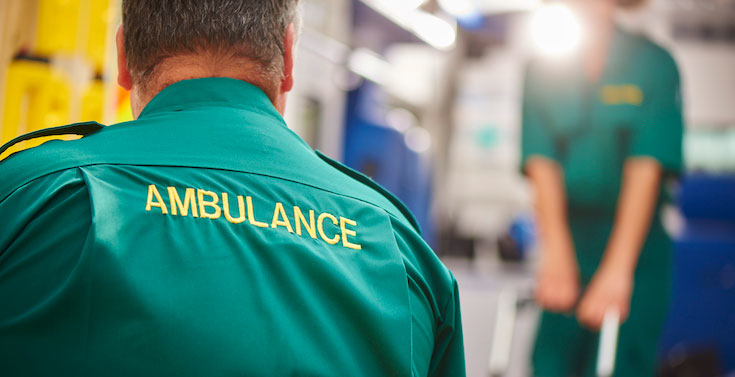
Therapeutic radiographers
Therapeutic radiographers play a vital role in the treatment of cancer. They are also responsible as they are the only health professionals qualified to plan and deliver radiotherapy and they provide care and support for patients throughout their treatment.
James Brooks, Pauline Humphrey, Nick Lowry & Teresa Howe, Therapeutic Radiographers at the BHOC
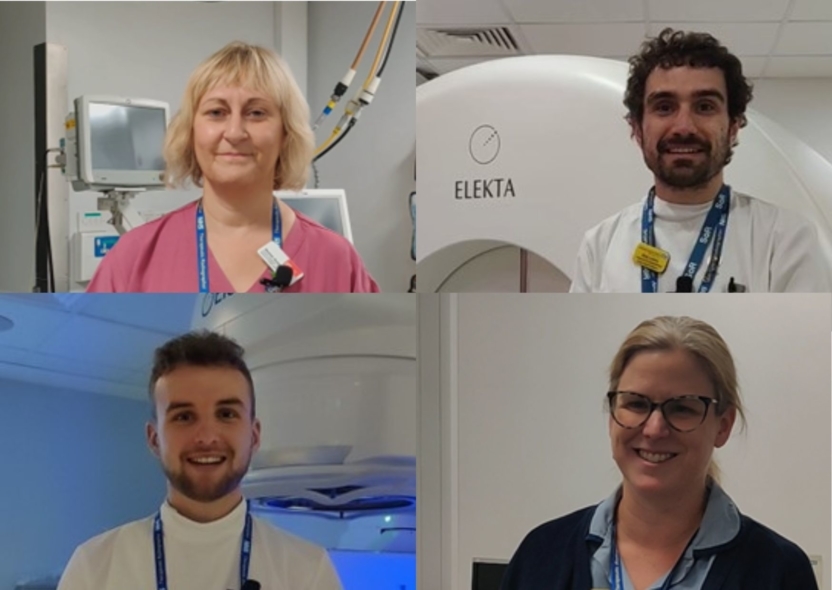
James Brooks, Pauline Humphrey, Nick Lowry & Teresa Howe, Therapeutic Radiographers at the BHOC

Diagnostic radiographers
Diagnostic radiographers use a range of techniques to produce high quality images to diagnose an injury or disease. They are responsible for providing safe and accurate imaging examinations and increasingly also the resulting report. Diagnostic imaging is a component of the majority of care pathways.
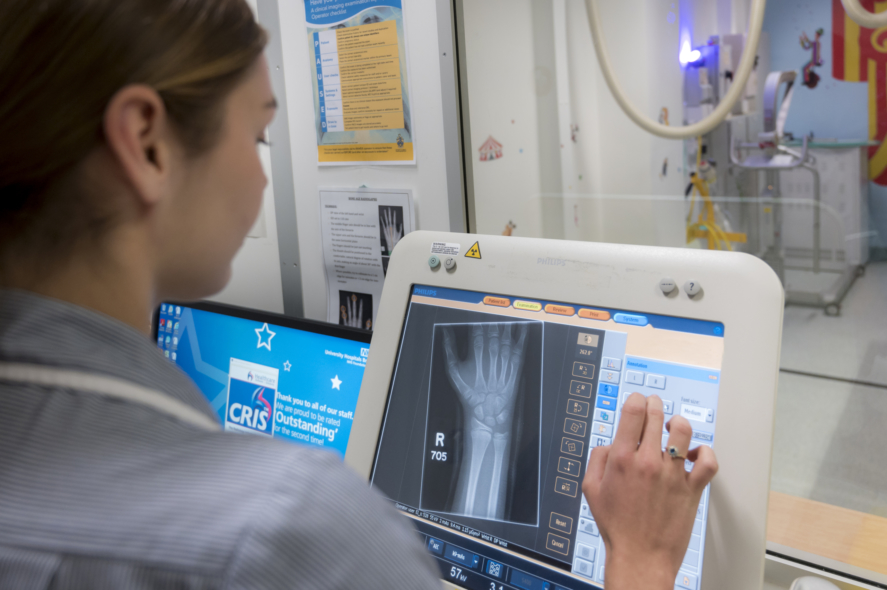
Prosthetists and Orthotists
Prosthetists are autonomous registered practitioners who provide gait analysis and engineering solutions to patients with limb loss. Trained in mechanics, bio-mechanics, and material science along with anatomy, physiology and pathophysiology, they are competent to design and provide prostheses that replicate the structural or functional characteristics of the patients absent limb.
Orthotists are autonomous registered practitioners who provide gait analysis and engineering solutions to patients with problems of the neuro, muscular and skeletal systems. They are extensively trained to design and provide orthoses that modify the structural or functional characteristics of the patients’ neuro-muscular and skeletal systems enabling patients to mobilise, eliminate gait deviations, reduce falls, reduce pain, prevent and facilitate the healing of ulcers.
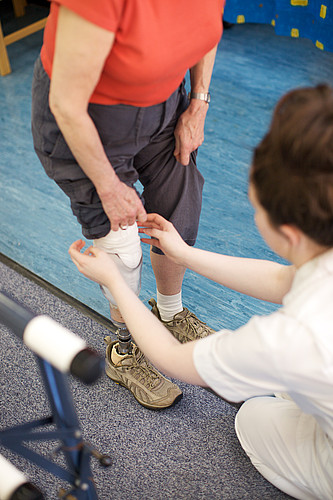
Orthoptists
Orthoptists help premature infants with retinopathy of prematurity, children with reduced vision due to squint, adults and children with eye movement defects due to diabetes, hypertension, endocrine dysfunction, cancer, trauma and stroke. Extended scope orthoptic practitioners now work in high volume ophthalmic specialities such as glaucoma, cataract and age related macular degeneration.
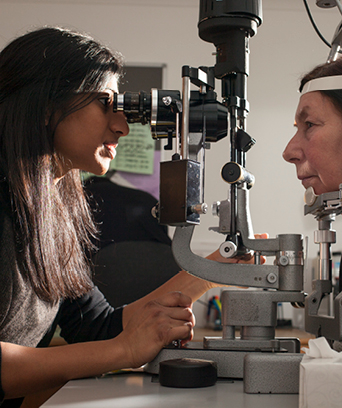
Operating Department Practitioners (ODPs)
ODPs are highly skilled healthcare practitioners that support patients of all ages during each phase of the patient’s perioperative care.
As well as providing this specialised care, ODPs are responsible for preparing the operating theatre and maintaining communication between the surgical team, operating theatre and wider hospital.
Alex Moore, Senior Operating Department Practitioner at the BRI
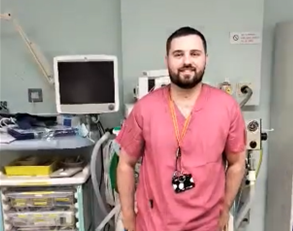
Alex Moore, Senior Operating Department Practitioner at the BRI

Play and Art Therapists
Play Therapists work to help a child to gain insight and understanding of their experiences, increasing emotional resilience and developing coping strategies while decreasing problematic behaviours and internalized conflicts. Play Therapists work closely with the child’s parents/carers throughout the Play Therapy intervention and occasionally undertake parent-child relationship interventions.
Art therapists use art as a form of psychotherapy to encourage patients to explore a variety of issues including emotional, behavioural or mental health problems, learning or physical disabilities, life-limiting conditions, neurological conditions or physical illnesses.
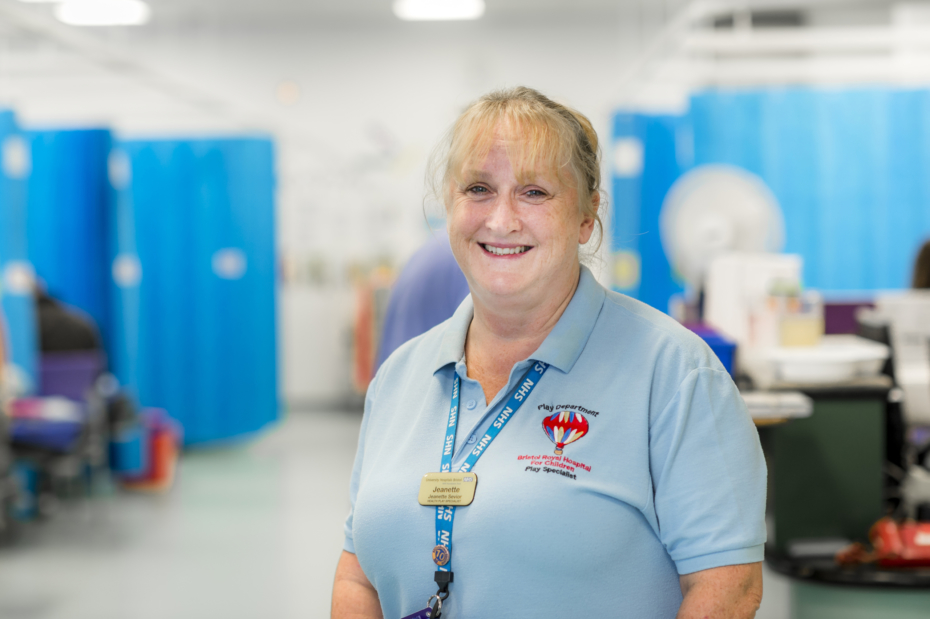
Specialised Support Services
-
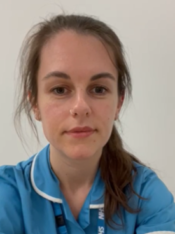 Phoebe Symons
Phoebe Symons
Dietitian Assistant at the BRI -
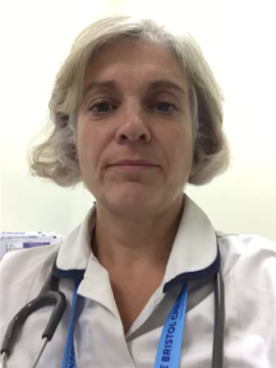 Kate Ford
Kate Ford
Respiratory Physiotherapist and Non-Medical Prescriber at the BRI -
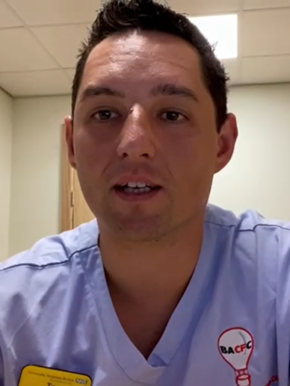 Tom Modzelewski
Tom Modzelewski
Physiotherapy Assistant at the BRI
Join the AHP team!
If you like the look of the AHP team here at UHBW and you're looking
for current vacancies in Bristol and Weston, then why not join us? Click below to view the
vacancies we have across our hospitals and divisions.



